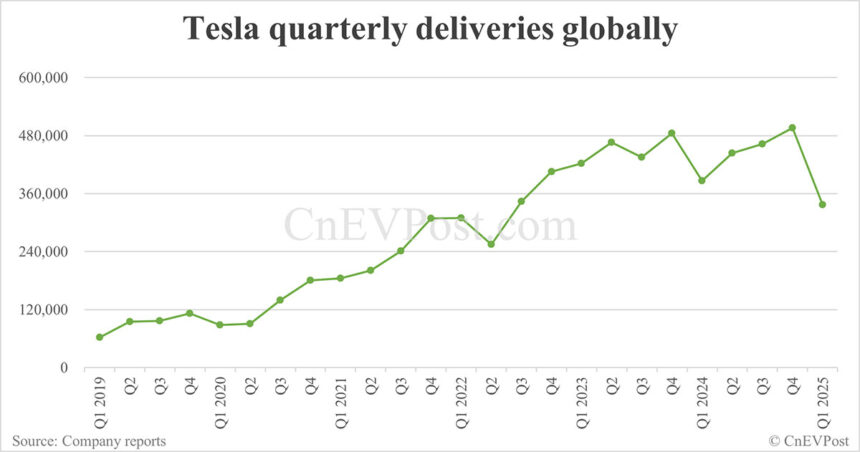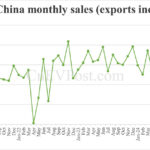Tesla Falls Short of Expectations with First-Quarter Deliveries
Tesla, the renowned electric vehicle manufacturer, recently reported its first-quarter global deliveries, which fell short of Wall Street analysts’ expectations. The company delivered 336,681 units worldwide, marking a 12.96% decrease from the previous year’s figures. This underperformance has raised concerns among investors and industry experts.
The disappointing results were mainly attributed to weak performance in several key global markets. Tesla’s battery electric vehicle (BEV) sales lagged behind those of BYD, a Chinese rival, for the second consecutive quarter. This trend has sparked discussions about Tesla’s market competitiveness and growth prospects.
Despite facing challenges, Tesla remains optimistic about its future trajectory. The company cited the successful ramp-up of its new Model Y production lines as a positive development. In the first quarter, Tesla produced 362,615 vehicles and deployed 10.4 GWh of energy storage products, showcasing its commitment to innovation and sustainability.
Tesla’s operations in China also experienced a slowdown, with first-quarter sales declining by 21.79% compared to the same period last year. However, vehicles produced at the Shanghai plant still accounted for over 50% of Tesla’s global deliveries in the first quarter. This underscores the significance of the Chinese market for Tesla’s growth strategy.
On the other hand, BYD continued to outperform Tesla in passenger BEV sales, emphasizing the fierce competition in the electric vehicle industry. BYD’s record sales figures in the first quarter highlighted its strong market presence and product offerings. The company’s focus on both BEVs and plug-in hybrid electric vehicles (PHEVs) has allowed it to cater to diverse consumer preferences and capture a larger market share.
As Tesla prepares to release its financial results for the first quarter of 2025, investors are eagerly awaiting insights into the company’s performance and future outlook. The outcome of these financial reports will likely have a significant impact on Tesla’s stock performance and market valuation.
In conclusion, Tesla’s first-quarter deliveries falling short of expectations have raised concerns about the company’s growth trajectory and market competitiveness. As the electric vehicle industry continues to evolve rapidly, Tesla faces increasing pressure to innovate and adapt to changing market dynamics. Investors and industry observers will closely monitor Tesla’s next steps to assess its ability to maintain its position as a leader in the electric vehicle market.







